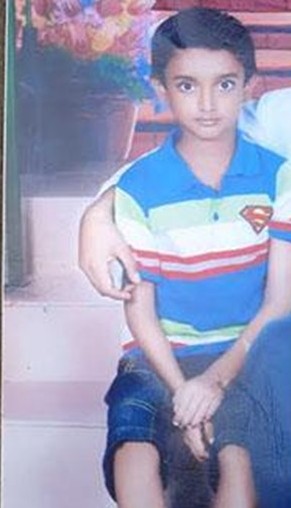If a mother’s sorrow is loud and heart-wrenching, then a father’s sorrow is drenched in aching silence.
Sixteen-year-old Hafez Md Masum Reza Antor was among the many young lives lost during the July Uprising of 2024. But for his father, Mizanur Rahman, the pain is an unending vigil.
Even now, Mizanur can often be found standing by the roadside with his son’s photographs in hand—waiting. Waiting, as if Antor might suddenly appear from around a corner and call out, “Baba.”
“My innocent son embraced martyrdom for the country while protesting against injustice,” Mizanur says, his voice trembling. “I know I’ll never hear him say ‘Baba’ again. But still, I wait.”
Mizanur Rahman, a resident of Karla village in Dinajpur’s Biral upazila, carries a lifetime of memories—starting from the day of Antor’s birth in 2009 to the day he buried him, just 16 years later.
In 2005, Mizanur had moved to Dhaka’s Konapara area in search of work and found employment as an electrician. It was there he met the family of Antor’s maternal grandfather. In 2007, he married Nahida Begum, and in 2009, their only child, Antor, was born.
When Antor was just four years old, Mizanur and Nahida separated. Fearing for his son’s well-being, Mizanur took full custody and returned to his ancestral home in Dinajpur to raise him.
He later remarried Sultana Begum of Dharmapur village in the same upazila, and together they have two daughters—Minu Akter, now 9, and Mahima Akter, 4.
Mizanur dreamed of a bright, spiritual future for his son. He enrolled Antor in Al-Noor Qawmi Madrasa in Hazaribagh, Dhaka, with the hope that he would grow up to become an Islamic scholar. Over the next eight years, Antor not only memorized the entire Holy Qur’an but also earned the title of Hafez—a source of immense pride for his father.
Antor had aspirations of becoming a renowned alem—a scholar of Islam. But all those dreams were shattered on August 4, 2024, just a day after the authoritarian regime in power was overthrown.
That day, Mizanur found out through Facebook that many students from Al-Noor Madrasa had joined the mass student movement in Shahbagh, demanding justice and equality. Tragically, several of them had been killed during the demonstrations.
Panicked and desperate, Mizanur rushed from Dinajpur to Dhaka Medical College Hospital (DMCH), arriving around 3:30 p.m. He scoured the hospital, searching through the lists of the injured, but found no trace of his son.
He made his way to the hospital morgue and, alongside Antor’s maternal grandfather Mohammad Ali and uncle Moslem Uddin, finally identified Antor’s lifeless body—decomposed and wrapped in silence. A hospital staff member informed them that Antor had died on the spot during the demonstration and had remained unclaimed in the morgue following an autopsy.
They brought Antor’s body home to his maternal grandfather’s residence in Dhaka’s Jatrabari area. That evening, after Maghrib prayers, Antor was laid to rest at Dogair graveyard in Konapara.
But for Mizanur Rahman, the burial did not mark the end. It only marked the beginning of an enduring sorrow.
He still stands by the roadside, clutching his son’s photos with trembling hands—waiting. Waiting, not for closure, but for a voice that will never return.
“As if he might still come back,” Mizanur whispers. “And say, ‘Baba.’”


